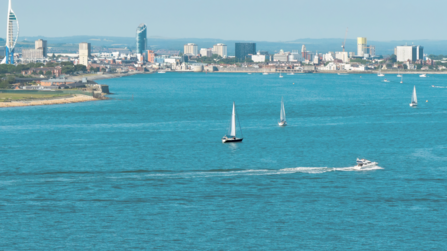Boating practices can have a significant impact on the health of marine ecosystems. The Solent Boating Survey seeks to understand and build a clearer picture of how boating can impact the Solent’s vital seagrass meadows.
“We are passionate about helping people connect with nature, which includes our local seas. said Emily Stroud, Senior Engagement Officer (Solent Seascape) at Hampshire & Isle of Wight Wildlife Trust.
“Getting out on the waves in a boat is a great way to do this. However, traditional anchoring and mooring systems can cause damage to the Solent’s delicate seagrass meadows. The Solent Boating Survey is vital in helping us understand the mindsets and motivations regarding how boats are secured in and around these precious habitats.
“The views and actions of boaters will ultimately help guide us in developing conservation strategies, with boating communities, that protects these important habitats whilst safeguarding community values.” Emily adds.
The survey has been launched during National Marine Week. This year’s theme is Sea the Connection, and the Trust is celebrating this connection by highlighting why a healthy, thriving marine environment – including seagrass meadows - matters. The annual celebration of the sea runs from Saturday 27th July until Sunday 11th August 2024 (it spans a fortnight due to the varying tidal conditions around the UK).

